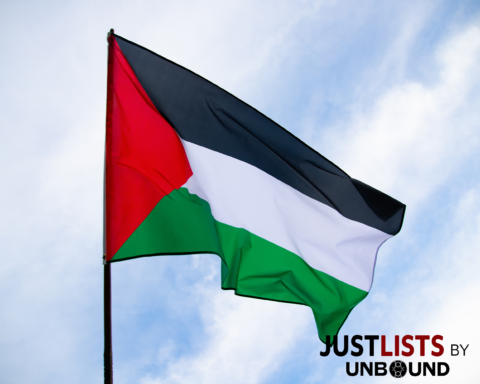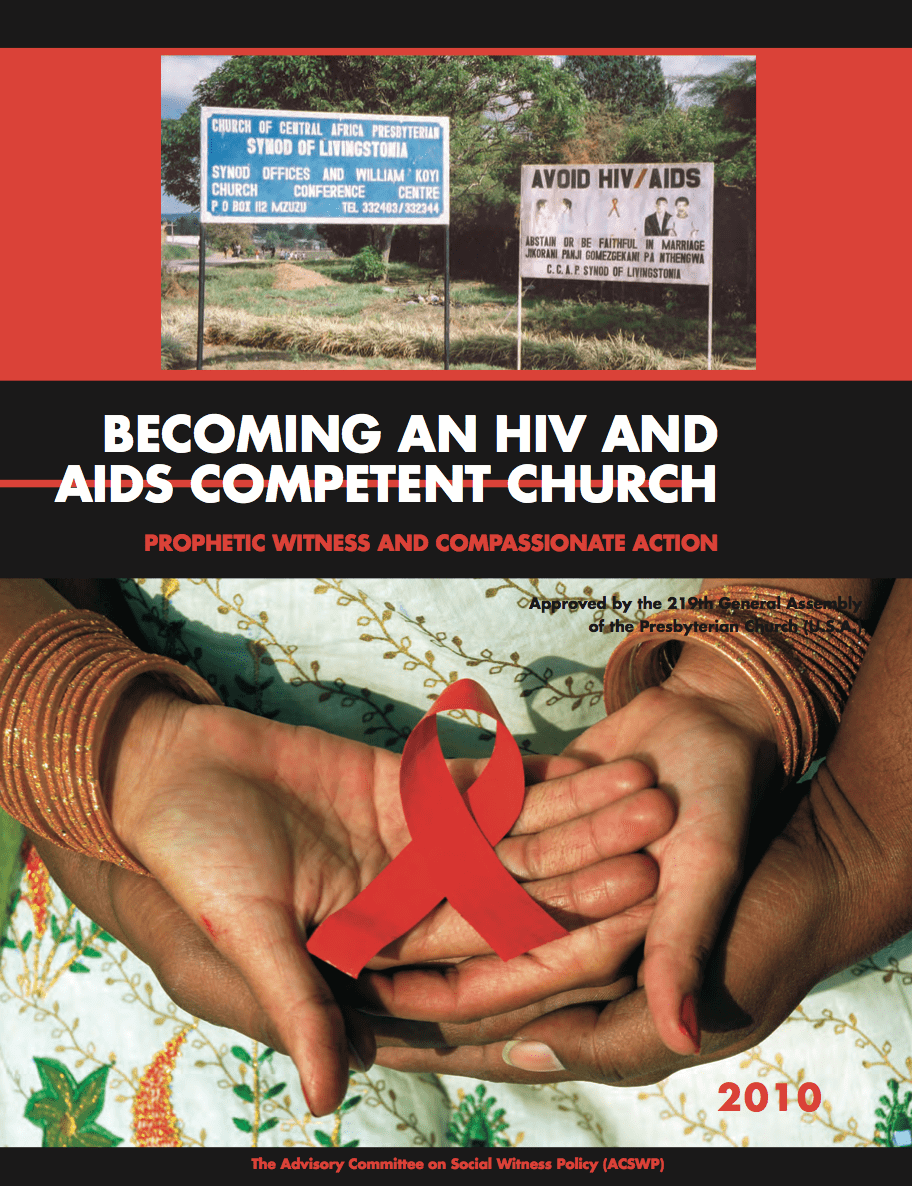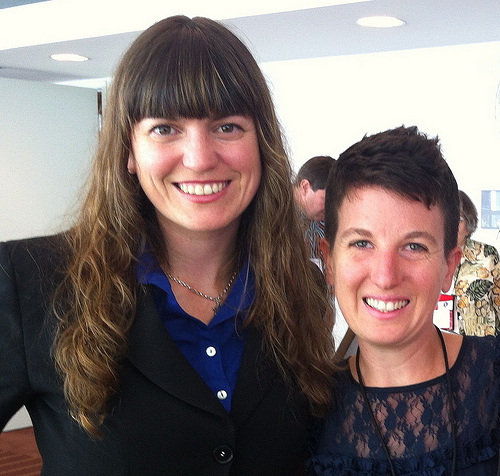Confessions of an Occasional Presbyterian
By Robert B. Ross, Pittsburgh, PA
Never in my wildest dreams did I ever imagine that I’d be sitting in front of a computer screen on a hot summer night watching the live video stream of the Presbyterian Church (U.S.A.)’s General Assembly.
But there I was, with two friends, my arms wrapped around my knees, anxiously awaiting the GA’s votes on divestment and boycott. The Church’s Committee on Middle East and Peacemaking Issues had earlier in the week passed an overture recommending that the General Assembly vote to divest from three companies (Caterpillar, Hewlett Packard, and Motorola Solutions) that were aiding and profiting from the Israeli occupation of the Palestinian West Bank.[i] We had attended all of the committee’s meetings that week, each of which lasted well into the night. Earlier in the day, amidst temperatures in the mid 90s, and guided by the Church’s Israel/Palestine Mission Network, we joined Jewish Voice for Peace to pass out leaflets and sing songs on the street corners of downtown Pittsburgh, urging commissioners to vote to divest.
___________________________________________
For the first time in my life, I began to see the Presbyterian Church as a channel through which at least some of my activism could take place. I scheduled a trip to the Israel Palestine Mission Network meeting in Chicago in October. And I made plans to go to church next week.
And maybe the week after that.
___________________________________________
My mother, a Presbyterian minister in central Virginia, was an alternate commissioner; she would have attended the General Assembly had one of the commissioners from her Presbytery not been able to make it. Months before I knew that anything related to Israel and Palestine would be on the agenda, I looked forward to the possibility that my mom would be in Pittsburgh, my current hometown, for the General Assembly. Although raised and confirmed in the Presbyterian Church, I have only occasionally attended church since graduating from high school nearly twenty years ago. So my excitement for the General Assembly had everything to do with the possibility of seeing my mother and very little to do with my proximity to the governance of a church of which I was only nominally still a member.
But when someone from the Pittsburgh Palestine Solidarity Committee, of which I am an active member, informed me a few days before the meeting that the Presbyterians would be voting on divestment and boycott, I instantly became engaged.
I have been teaching and participating in activism related to Israel and Palestine since returning from a year in Lebanon in 2007 and 2008. While serving as a visiting assistant professor at the American University of Beirut that year, I found myself spending a lot of time in a few of the country’s twelve Palestinian refugee camps. Over the course of several trips to the camps, I received an education from the many courageous men, women, and children I met there, hearing stories of their forced exile from Palestine more than sixty years ago, their endurance of various domestic, internecine, and regional wars, and their degraded status under Lebanese law, which prevents them from owning property outside the camps and from working in most occupations. Most importantly to the Palestinians in Lebanon whom I met, they are prohibited by the Israeli government from returning to their homes and land in what is now called Israel.
I will never forget the evening I spent sipping coffee with a Palestinian family in their small, cinder block house in the Burj al-Barajneh camp, just south of Beirut. I had met them ten minutes earlier, introduced through a mutual friend. As is common among Palestinians, the family immediately invited me into their home for tea and coffee. Warm and full of life, the family’s mother explained to me that they had no problem with the Jewish people of Israel. “They can stay in Palestine. We are hospitable people. There is room for all of us. But it is our home and we want to return. We want to live there too.” It was a sentiment that I had heard numerous times among Palestinians in Lebanon. They remembered and hoped to return one day to the Palestine that they had lost before the creation of Israel in 1948—a nation in which Jews, Muslims, and Christians have a long history of living together, sometimes in the same buildings, on the same streets, and in the same villages and cities.
___________________________________________
But this struggle isn’t about me, nor is it, ultimately, about the Presbyterian Church. I went home on the night of the divestment vote, as I do every night, to my comfortable urban row house without an inkling of fear that it would be bulldozed to the ground.
___________________________________________
It is this “right of return,” enshrined in international law by UN Resolution 194, that forms one of the three main goals of the boycott, divestment, and sanction (or BDS) movement. Palestinian civil society called in 2005 for the international community to boycott Israeli products, divest from companies doing business in Israel, and sanction the Israeli government for its continued oppression of the Palestinian people. BDS is a nonviolent set of tactics that was effective in helping to bring down apartheid in South Africa and is intended in Israel and Palestine to put economic and political pressure on the Israeli government to achieve three goals: allow refugees to return to their homes, end the occupation of the West Bank and siege of Gaza, and grant equal rights to the Palestinian citizens within Israel. Kairos Palestine, a moving call to action by Christian Palestinians, urged churches around the world to join the BDS movement in the spirit of Christian faith, hope, and love.
In this context, the Presbyterian Church (U.S.A.)’s attempts to divest merely from three companies profiting from the occupation and to boycott Israeli products from the occupied Palestinian territory were relatively conservative measures. The Church could have called for a much more extensive boycott and divestment campaign, targeting all businesses engaged with Israel and aimed at achieving all three of BDS’s goals instead of just one: ending the occupation.
Nevertheless, that divestment and boycott were being discussed at all on such a large and mainstream American stage was a significant victory in itself amidst the larger struggle to bring peace and justice to Israel and Palestine.
When the General Assembly finally voted on divestment at around 10:00 p.m. Thursday night, my friends and I anxiously waited for the results.[ii] And there on the screen, a few seconds later, appeared the vote count: 333 against divestment, 331 for, and 2 abstaining. The Presbyterian Church (U.S.A.) had come so utterly close to becoming the first American mainline church to divest any stocks at all from Israel. Divestment from an occupation that was not only illegal under international law but also, according to countless reports (including Kairos Palestine), particularly brutal and racist, was clearly the right thing to do. But the church, as a whole, had failed to heed the obvious call. I was devastated. My renewed pride for the church of my upbringing and family, which had emerged that week, had suddenly turned into frustration and resentment. I took the vote personally.
The following morning, the General Assembly unexpectedly changed course and voted overwhelmingly to boycott all Israeli products coming from the settlements in the West Bank. This vote, although entirely symbolic, was welcome news and it began to restore some of my faith in the Presbyterian Church. Moreover, as I reflected back on the week of committee meetings during which I had heard countless pastors, elders, and other laypeople speak passionately, knowledgably, and honestly about their quest for peace and justice in Israel and Palestine, I felt more heartened by the Church’s role in this process.
___________________________________________
In the context of BDS, the Presbyterian Church (U.S.A.)’s attempts to divest merely from three companies profiting from the occupation and to boycott Israeli products from the occupied Palestinian territory were relatively conservative measures.
___________________________________________
For the first time in my life, I began to see the Presbyterian Church as a channel through which at least some of my activism could take place. I scheduled a trip to the Israel Palestine Mission Network meeting in Chicago in October. And I made plans to go to church next week. And maybe the week after that.
That Palestine might bring me closer to the church and that the church may take me closer to Palestine should not come as such a surprise. For after all, my deeply held values of peace, love, equality, and truth, which drive my Palestine solidarity work, are rooted primarily in my Presbyterian upbringing.
But this struggle isn’t about me, nor is it, ultimately, about the Presbyterian Church. I went home on the night of the divestment vote, as I do every night, to my comfortable urban row house without an inkling of fear that it would be bulldozed to the ground. There was no concern that soldiers would enter my home or that an army would lay siege to my neighborhood or city. I made plans to drive across the state line to Columbus, Ohio, the next day, never worrying that I would have to stop at a humiliating checkpoint where my race and religion would determine whether I could continue. Had I chosen to drive to Hannibal, Missouri, the place of my birth, no one would have stopped me. The vote against divestment upset and angered me but it did not significantly affect the freedom I enjoy as a privileged citizen of the world.
Meanwhile, the occupation and ethnic cleansing[iii] of Palestine continue unabated. Less than a week after the General Assembly, a committee appointed by Israeli Prime Minister, Benjamin Netanyahu, ruled that there actually was no occupation at all, and therefore, Jewish-only settlements on the West Bank should continue.[iv] The Israel Defense Forces destroyed the mobile homes of three Palestinian families north of Jerusalem, where the families had been staying after their previous homes had already been demolished.[v] Israeli settlers built their own mobile homes in al-Khader Village, south of Bethlehem, after illegally seizing land from a Palestinian farmer.[vi] Amidst the crippling siege of Gaza, Israeli airstrikes continued to bombard the tiny strip of land, killing at least one Palestinian.[vii] And my friends in the Palestinian camps of Lebanon were no closer to returning home to Palestine.
We can celebrate the relative victories of the Presbyterian Church (U.S.A.). But clearly, we must do more. It does not take a religious person to recognize that the continuation of the atrocious treatment of the Palestinian people is sinful. Religious communities, businesses, labor unions, and other civil society organizations across the world must fully utilize BDS tactics in solidarity with Palestinians to help end all forms of their multi-faceted oppression.
The author would like to thank Lisa Bhungalia, Kate Daher, and Ron Smith for the generous feedback they provided on an earlier version of this manuscript.
Notes
[i] Caterpillar bulldozers destroy Palestinian homes, orchards, and olive groves in the West Bank to make room for Jewish-only settlements and Jewish-only roads; Motorola Solutions developed MotoEagle, a surveillance tool used to monitor the settlements, sniper towers, and separation wall; Hewlett Packard’s Electronic Data Systems is employed at Israeli checkpoints within the West Bank and by the Israeli Navy to assist its attacks on Gaza (Profiting from Occupation?, Israel Palestine Mission Network, 2012).
[ii] The General Assembly never actually voted on divestment. Instead, the General Assembly voted on a “minority report,” which was to replace the overture on divestment with one on “investment.” This was a strategic and arguably underhanded move by divestment’s opponents on the Middle East and Peacemaking Issues committee, particularly as it confused many commissioners into believing that they had to choose between either divestment or “investment,” when, in fact, the committee had voted to recommend both divestment and investment. But according to parliamentary procedures, a minority report endorsed by the general assembly replaces the majority report, which in this case, was the overture on divestment. So for all intents and purposes, whether transparent or not, the vote on the minority report ended up being the de facto vote on divestment (for more details on the posturing and parliamentary procedures involved in these votes, see “J Street and Americans for Peace Now Biggest Losers in the Presbyterian Church (USA) Battle Over Divestment,” by Abraham Greenhouse, Jadaliyya, July 12, 2012).
[iii] For an authoritative account on the subject, see The Ethnic Cleansing of Palestine, by Ilan Pappe. Oxford: OneWorld Publications. 2006.
[iv] “Netanyahu-appointed panel: Israel isn’t an occupying force in West Bank,” by Chaim Levinson and Tomer Zarchin, Haaretz, July 9, 2012.
[v] “Israeli Forces Remove Mobile Homes set as Shelter,” WAFA Palestinian News & Info Agency, July 9, 2012.
[vi] “Settlers Seize More Land Near Bethlehem,” by Jack Muir, International Middle East Media Center, July 9, 2012.
[vii] “Palestinian killed in fresh Israeli airstrikes in Gaza,” by Jack Muir, International Middle East Media Center, July 12, 2012.







Unbound Social